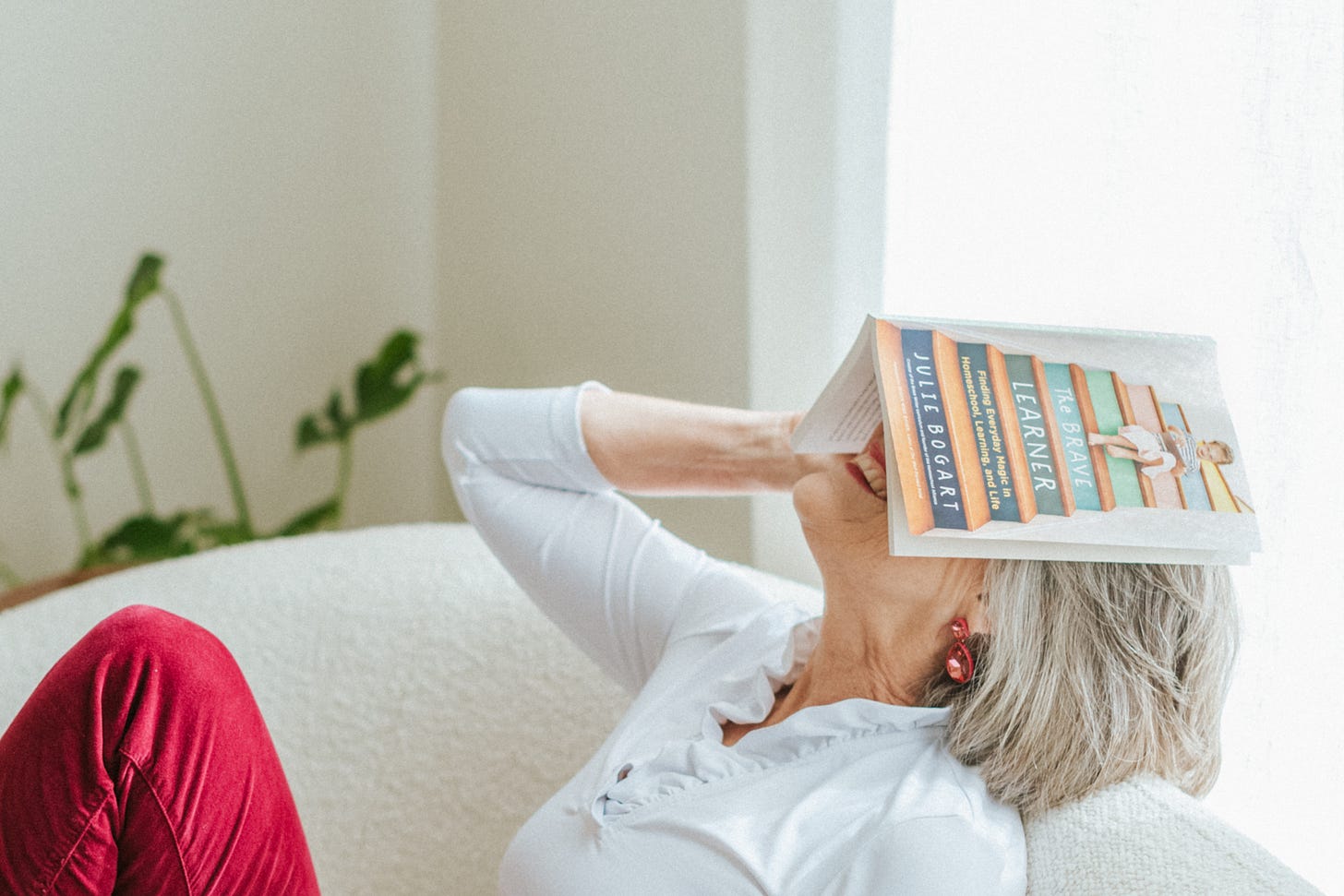I’m all for innovation! We’ve got micro schools, online classes, and a huge array of co-op options in the homeschool space. Homeschooling is having a moment!
In this big shift, I want to be sure we remember one of the golden purposes of home education: we’re not just moving the location of the education, we’re also changing how that education is experienced by the child.
This morning I stumbled on an article I used as research for one of my books. It’s an academic paper studying the effects of play and joy on learning in Finland. One of the initial assertions is that “emotions in the school world have been studied surprisingly little.” Anxiety and negative emotions get some attention, but happiness? Forget about it.
Yet joy, it turns out, is tied to a child’s experience of success. Joy in learning is the subject of this paper.
My tag line, “Joy is the best teacher” is validated by the research!
When studying children in primary school, the key path to joy in learning comes through play. Play offers kids “important and meaningful activity” whatever adults feel about it.
“Children’s free play should not be regarded only as side action that occurs when nothing more important is happening and all the ‘real’ tasks are completed…
A free student is inquisitive and creative.”
One of the conclusions the study draws is that authoritative teachers often fail to provide learning opportunities that produce joy because joy is linked to freedom. Teachers, by nature, feel duty-bound to direct education and worry that freedom will lead kids away from the important academic outcomes they want to achieve.
However, as researchers Rantala and Maatta explain, the key here isn’t to give up objectives for learning. The goal is to create opportunities for a child to make meaning that matters to the child while giving them choices that elicit joy.
This joy objective is harder to achieve in a school environment, but we’re the lucky ones. We’re home! Home is where we have the best chance to feel those positive emotions while learning.
A child can’t commit to the energy academic tasks require if they see no value in those tasks. School relies on the carrot and stick method of motivation.
At home, that falls apart. And we’re glad that it does!
Kids need:
Play
Freedom
Support (when they get stuck)
Choices
Time (no hurrying)
Social relationships (with you, siblings and/or friends)
An ordered framework
Invitations to experience joy
Kids don’t need:
Prolonged speeches
Pressure
Monotony
Too much repetition of skills already acquired
Rigid structure
Blame when they express negative emotions
Adult reasons for why learning a subject matters
Shift our language
Shifting our language to “home learning” might help us change how we see joy and learning.
When I embarked on homeschooling, I wanted my kids to have tailor-made opportunities to learn—to value the subject matter and make use of it. If I think of my homeschool as a home learning environment, I see everything differently. I use placemats with maps on them. I hang posters on the walls of famous works of art. I leave math tools and toys out in the open. I make sure a supply of interesting books are on low shelves within easy reach of a book nook.
Learning at home involves all five senses and even my decorating choices!
Our job is to offer opportunities for play, joy, freedom of expression, and plenty of time to learn any task or topic. Sometimes the smallest tweak makes all the difference
handwriting with a white gel pen on black paper,
petting the dog while reading silently,
using rods of length to learn math facts,
taking the history lesson outside,
leaving binoculars and field guides next to the sliding glass door.
When we promote happiness (what Aristotle refers to as every person’s chief drive), we open up pathways to learning that weren’t there before. Too often, adults require signs of suffering as evidence of learning. Yet the research shows the opposite!
When a child is happy, a child is learning. We get to help determine what they learn while happy—that’s the task of the homeschooling adult.
Can we become the kind of home educators who look for ways to enhance learning rather than merely enforcing schoolwork?
Can we be the curators of “Home Learning” instead?
Brave Writer is built on these principles—that joy is the best teacher, that home is a great place to learn.
We’re here to help!
Source:
Ten Theses of the Joy of Learning in Primary Schools (Tania Rantala and Kaarina Maatta, Early Childhood Development and Care, Vol 182, No. 1 January 2012, pp 87-105)
My book The Brave Learner can help you find joy in learning too.



reading this was great timing for me. I KNOW in my bones that my kiddo is learning. Our homeschool method is eclectic and he gets a lot of freedom to pursue his interests. However, we dont have a ton of "output" to "prove" the learning. There isnt much of a paper trail. I dont know who exactly I feel the need to prove it to (maybe myself?), but I was just starting to think about getting more rigorous in my expectations for his output. The idea of Joy vs demonstrable learning is a false dichotomy- Im sure there is a way to do both- but I am glad I have this as a reminder to prioritize the joy.
One of the biggest shifts a parent can make is realizing that learning does not equal school. Learning is happening everyday —it just might not look like school 😂